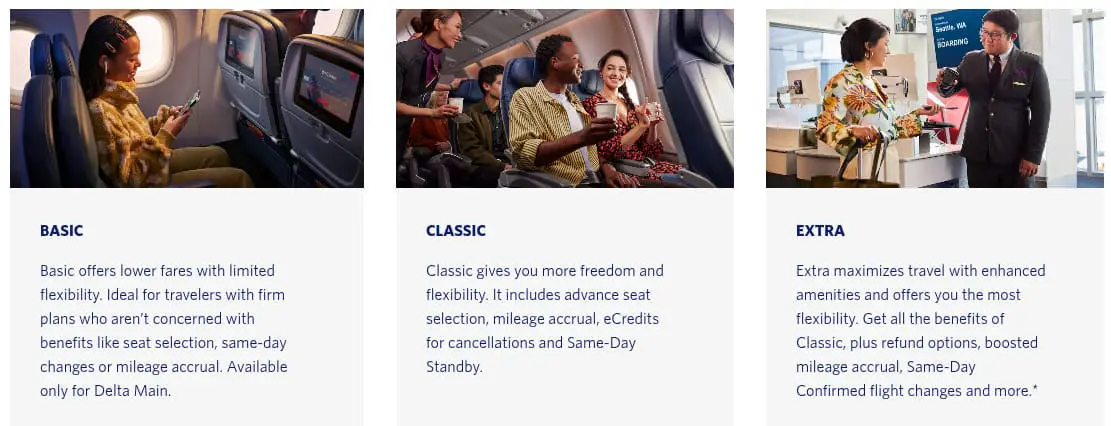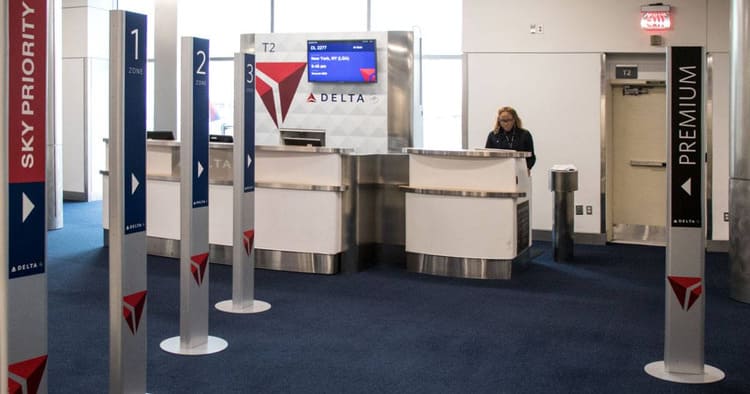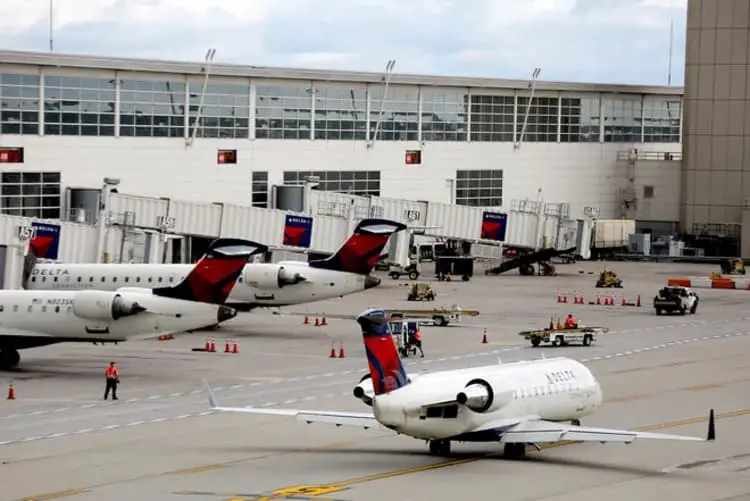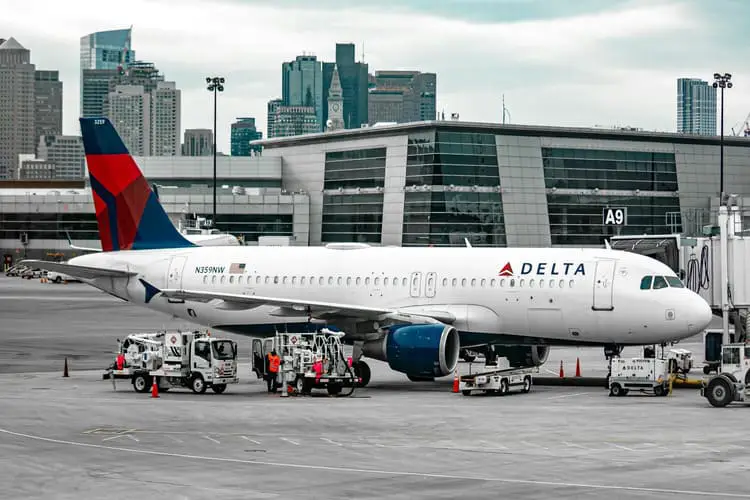Starting October 1, 2025, Delta is rolling out a rebranded fare structure that, depending on how you look at it, either gives you more flexibility—or just charges you more for what used to be standard.
Delta says it’s about “clarity and choice.”
But let’s be honest: it’s also about squeezing more revenue from every seat without adding much to the passenger experience.
Here’s what’s changing, what you’ll need to know when booking, and why this matters.
The Big Change: “Experiences” Replace Fare Types
Delta is replacing its old fare categories with something new: “experiences.”
That sounds nice, but it’s essentially a tiered pricing model across each of Delta’s cabins.
Each product (Delta Main, Delta Comfort, Delta First, Delta Premium Select, and Delta One) will now offer either two or three pricing levels.

Delta Main, for instance, will offer:
- Basic (the new Basic Economy)
- Classic (the standard fare you probably booked before)
- Extra (refundable, flexible, and now with more perks)

All other cabins (like Comfort+ and First Class) will offer just Classic and Extra.
That’s 11 combinations in total, all part of a newly named fare ladder that seems designed more for Delta’s revenue team than for ease of customer understanding.
If this sounds familiar, it’s because American Airlines already did something similar. So much for Delta being the innovator.
New Names, Same Seats

Let’s clear one thing up right away: nothing about the actual onboard experience is changing.
If you book a seat in Delta Comfort or First, the physical product—legroom, meals, service—remains exactly as it is today. This is a branding and pricing change, not a change to the hard product.
What is changing is the value of what you’re getting for the price. And unless you pay more, you might be getting less than you think.
The Breakdown: What Each Experience Includes

Let’s take Delta Main (formerly Main Cabin) as the example, since it’s the only cabin with all three “experiences”:
| Feature | Main Basic | Main Classic | Main Extra |
| Seat assignment | After check-in | At booking | At booking |
| SkyMiles earning | None | 5 mi per $ | 7 mi per $ |
| Cancel & refund | eCredit minus fee | eCredit, no fee | Full refund to card |
| Boarding zone | Zone 8 (last) | Zone 6–7 | Zone 5 |
| Upgrade eligibility | Not eligible | Standard | Higher priority |
| Same-day standby | No | Yes | Yes |
The Extra tier is the most interesting—and the most telling. It’s basically Delta’s old “Refundable” fare, but now bundled with a few new carrots: more SkyMiles, priority boarding, higher upgrade eligibility, and same-day changes for all.
You’d think a refundable ticket wouldn’t need extra perks to justify the price.
But Delta’s betting you’ll find this more appealing than simply calling it “refundable.” And they’ll likely price it higher, too.
If you’re a Delta Medallion member (Delta’s elite loyalty program), this new fare structure affects more than just pricing and refunds—it also changes how upgrade priority works.
Starting October 1, Delta will use four main factors to determine who gets an upgrade when there are limited premium seats available:
- Your Medallion status level — This still comes first. The higher your status, the better your chances. So the order remains:
- Diamond > Platinum > Gold > Silver
- The cabin you purchased — Higher fare classes get priority. For example, someone who booked Delta One (business class) is ahead of someone in Premium Select, who is ahead of someone in Delta Comfort or Delta Main.
- Your fare experience — This is new. Within the same Medallion tier and cabin, passengers who bought the more expensive “Extra” fare get priority over those who bought the “Classic” fare.
- Other tiebreakers — Like whether you have a Delta credit card, your spending with Delta (MQDs), and how early you requested the upgrade.
Let’s put it into a real-world example:
Imagine you and another passenger both have Platinum Medallion status and you both booked seats in Delta Comfort.
You selected the “Extra” experience when booking (more expensive), and they chose “Classic” (standard fare). Even though you’re both Platinums in the same cabin, you would be ahead of them in line for an upgrade to First Class.
That might not sound huge—but when there are only one or two upgrades available on a flight, it can make all the difference. Especially now that Delta upgrades fewer people than before—only about 13% of domestic First Class seats go to Medallion members.
In short, your upgrade odds will now depend not only on your loyalty status, but also on how much you paid.
So if you want to maximize your benefits, you’ll need to consider not just what cabin you book—but what “experience” you choose within that cabin.
Transparency or Trouble?
Delta is framing this as an effort to be more transparent and to give customers more control.
That’s partly true.
You’ll see all the experiences laid out when you book, with clearer information about what each fare includes.
But let’s be honest: this makes booking more complicated, not less.
All fares under the same cabin class will now appear lumped together.
For example, Delta Main Basic and Delta Main Extra may both just say “Main” in your flight search. You’ll have to click into the fare details to figure out whether you’re getting seat selection or not. That’s a design choice. And it favors Delta—not you.
This mirrors American’s strategy. And for all the talk of innovation, Delta is clearly following the same playbook.
A Hint of What’s to Come?
One curious detail spotted in Delta’s marketing video was a reference to a $12,000 spend requirement for Gold Medallion status—a jump from the $8,000 requirement that caused an uproar in 2023 and was later rolled back.
Delta hasn’t officially announced such a change, so it may be a mistake. But if true, it suggests the airline is still keen to push the loyalty bar even higher—even after customer backlash.
More spend, more tiers, more complexity: it’s a pattern.
Only Some Routes Affected (For Now)

It’s worth noting that the new fare experiences only apply to flights departing from the U.S. and Canada. International-originating flights will keep the current setup—at least for now.
And if you booked your trip before May 15, or if your flight departs before October 1, 2025, your ticket will follow the old rules.
No Downgrades Allowed
One more important point: you can’t switch from Extra to Classic or Classic to Basic after booking.
If you change your mind, you’ll need to cancel and rebook. So think carefully before clicking “purchase,” especially on longer or pricier trips.
Upgrades to a higher cabin (say, Main to Comfort) will keep your fare experience level, but downgrades are off the table.
The Bigger Picture: More Revenue, Not More Value
At the end of the day, this is about monetizing flexibility and loyalty perks that were once part of the standard experience.
Delta sees an opportunity to get people who already skip Basic Economy to buy up even further—not just to Classic, but to Extra.
It’s about turning what used to be “included” into “optional add-ons,” and charging accordingly.
Will it work?
Probably.
Delta’s customer base is loyal, and many flyers will pay more for peace of mind or better SkyMiles accrual. But it also signals the end of an era where perks like refunds, flexibility, and priority boarding came with elite status or cabin selection alone.
Now, they come with a price tag.
“When ‘More Choice’ Really Means ‘More Cost’”
Delta’s “Good, Better, Best” strategy is clever. It gives you more options—but only if you’re willing to pay for them.
For the airline, it’s a way to extract more value from travelers.
For customers, it’s another reminder that even in a familiar seat, you’re no longer getting the same ride—unless you pony up.
Booking a flight is no longer just picking a time and cabin.
It’s a mini obstacle course of micro-decisions, upgrade calculus, and fare types disguised as “experiences.”
Welcome to the future of flying.
It might be flexible—but it definitely isn’t free.
